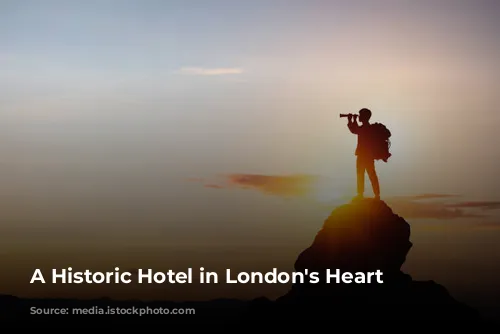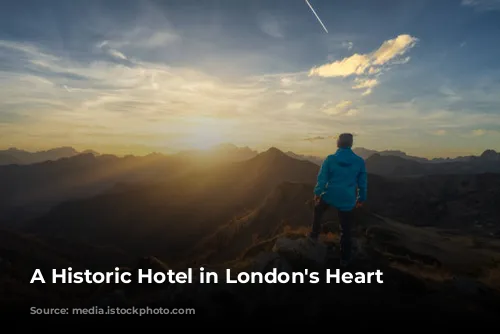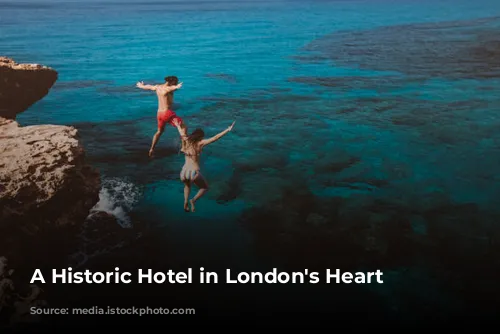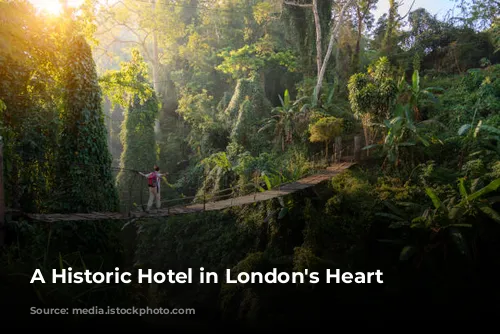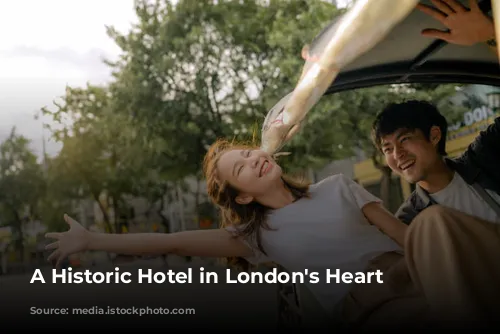The Corinthia Hotel London, standing proudly at the intersection of Northumberland Avenue and Whitehall Place, is a symbol of history and luxury. It’s located in the heart of London, a stone’s throw from Trafalgar Square and the Thames Embankment, making it a truly captivating spot.
A Historic Timeline
The hotel’s journey started in 1885 as the Metropole Hotel, its prime location near the Palace of Westminster and government offices attracting both dignitaries and the general public. Its strategic position, however, also made it a target during both World Wars. The government commandeered the building, using it for essential services.
The Ministry of Defence acquired the building after World War II, turning it into government offices. In 2007, the Crown Estates declared it surplus and sold it, marking a new chapter in its life. The building was meticulously restored and transformed into the Corinthia Hotel, a blend of hospitality and modern living.
Early Days: Grandeur and Royalty
Built by the Gordon Hotels company in 1883, the Metropole Hotel opened its doors with great fanfare. An 88-page brochure boasted its impressive amenities and services. It quickly became a favorite among the elite, hosting prominent events and attracting royalty.
The Prince of Wales, later King Edward VII, was a frequent guest, enjoying the Royal Suite, a lavish space overlooking Whitehall Place. The hotel also hosted prestigious events, including the annual dinners of the Aero Club and the Alpine Club.
Wartime Service and a Musical Legacy
The hotel’s strategic location meant it was requisitioned again during World War I. It served as accommodation for government staff, mirroring its role in the previous war.
After the war, the hotel re-opened as a luxurious establishment, with the Midnight Follies cabaret becoming a popular attraction. Bert Firman, a talented musician, became the bandleader at the tender age of 16, earning him the title of the world’s youngest bandleader at the time.
A Sporting Triumph and Government Headquarters
The Metropole Hotel witnessed a historic sporting event in 1936. England’s rugby team defeated the mighty New Zealand All Blacks in a thrilling match, with Prince Alexander Obolensky scoring a legendary try.
However, the hotel’s role in the 1930s shifted again, becoming a government office building. The Ministry of Labour and the Ministry of Transport became its first occupants, with the Air Ministry and the Ministry of Defence taking over later.
The Rise of MI9 and a New Chapter
The government requisitioned the Metropole Hotel once more in the lead-up to World War II. It became a hub of activity, playing a vital role in the war effort. Room 424 became the first home for MI9 and its secretive offshoot, the Special Operations Executive.
Following the war, the Crown Estate acquired the building from Gordon Hotels. The Ministry of Defence used it as a supplementary office building to its Whitehall headquarters. It housed the Defence Intelligence Staff for several decades, showcasing its continued importance in national affairs.
The Rebirth of a Historic Landmark
After remaining vacant for a few years, the Metropole Building was purchased by a consortium in 2007. The City of Westminster council approved the development of the building into a luxurious hotel and residential complex.
The Corinthia Hotel London reopened its doors in 2011, welcoming guests with its opulent accommodations and services. It has become a symbol of modern luxury, while still preserving the charm and history of its past.
A Legacy in Film and Art
The Corinthia Hotel has made its mark on the world of film and art. It served as a backdrop for several scenes in the blockbuster movie Skyfall.
The hotel’s distinctive architecture and rich history continue to captivate artists and filmmakers. Red Sparrow, a 2018 thriller, also used the hotel’s grand interiors for key scenes.
The hotel’s Artist in Residence program showcases local talent. It invites writers, theater companies, and filmmakers to create art inspired by the hotel’s unique atmosphere. This program highlights the hotel’s commitment to creativity and the arts.
The Corinthia Hotel London stands as a testament to history, resilience, and luxury. From its beginnings as a grand hotel to its service as a government office, the building has witnessed key moments in history. Today, it shines as a symbol of modern elegance, a place where history and luxury intertwine, offering a glimpse into London’s rich heritage and its vibrant present.

